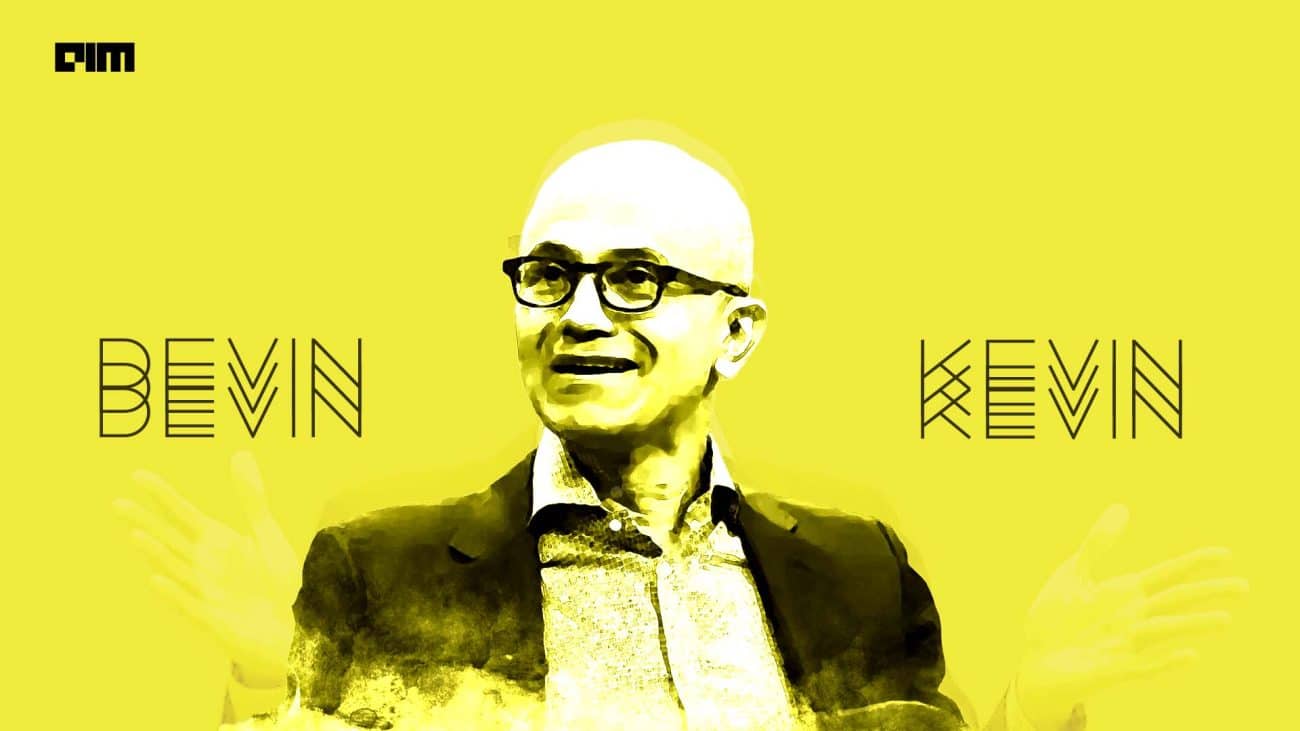Microsoft has partnered with Cognition Labs to bring Devin, an autonomous AI software agent, to every developer. From code migrations to engineering efficiency, Devin will help engineers save time and achieve more.
Microsoft already has a strong presence in the developer ecosystem, from Visual Studio Code to GitHub. Integrating Devin can now help elevate developer experiences to new heights.
“There are some tedious things you do as an engineer or a software developer, such as replatforming. It’s rare that an engineer really enjoys doing that. Devin is a tool designed to help you with those tasks,” said Microsoft CTO Kevin Scott.
Thanks for the kind words, Kevin 🫡 pic.twitter.com/5gQ0413Aog
— Cognition (@cognition_labs) May 22, 2024
“No other company has deployed more GenAI applications over the past year than Microsoft,” he added, giving the example of GitHub Copilot.
Scott highlighted that Microsoft has done a lot of work to build a whole cloud of capabilities – systems, services, and tools – around core AI platforms. This has been done specifically to provide developers with the big models they need and the choices they want to build the things that matter to them.
Bringing the capabilities of Devin to Azure seems to be another step towards filling that toolkit to make it easier for developers to build software.
GitHub Copilot Workspace + Devin: The Possibilities are Crazy!
Introduced in 2022, GitHub Copilot emerged as the world’s most popular AI developer tool. Earlier this year, Cognition Labs announced Devin, dubbed as the world’s first AI software engineer.
Upon its announcement, Devin got the developer community talking, as it effectively cleared multiple engineering interviews at top AI companies and also fulfilled actual tasks on the freelance platform Upwork.
However, the Microsoft and Cognition Labs collab received a mixed reaction from users online. While some are excited to use Devin, others are not very impressed about the deal.
Devin’s promise of completing full development projects independently helped it stand out from AI-assisted coding tools like GitHub Copilot. But it sparked a debate on social media about the future of programming jobs and the role of AI in software development, with some developers expressing concerns about job displacement.
Devin also landed in troubled waters after a software developer claimed, in a YouTube video, that the demo video that Cognition Labs released earlier this year was staged.
Despite this, however, hopes are still up. GitHub introduced Copilot Workspace, which reimagined the very nature of the developer experience itself. Within Copilot Workspace, developers can ideate, plan, develop, test, and execute code using natural language. It set the bar higher in the AI-assisted coding race.
Even though GitHub Copilot Workspace and Devin are both designed to solve similar problems and work towards similar goals, they differ fundamentally.
While Devin includes a build/test/run agent that attempts to self-repair errors, Copilot Workplace is not an ‘AI engineer’ but rather an AI assistant to help developers be more productive and happier as said by GitHub Next head Jonathan Carter.
Now that both rivals have teamed up, giving developers the best of both worlds, it will be interesting to see the endless possibilities of this collaboration.
Microsoft Wants To Have It All!
At Microsoft Build 2024, the tech giant seemed bullish on collaborations to deploy more GenAI applications across its ecosystem. From deepening partnerships with Hugging Face, AMD, NVIDIA and OpenAI to building in-house GenAI capabilities, Microsoft went all in.
Microsoft Copilot received over 150 updates, enabling developers to build custom Copilots. Team Copilot expanded Copilot from a personal assistant to a team member in Teams, Loop and Planner, among others.
Microsoft also announced the general availability of GPT-4o, OpenAI’s new flagship model, on Azure AI.
To make advanced AI tools and models more accessible and efficient for developers and businesses, it integrated new Hugging Face models into the Azure AI model catalog.
They’ve also upgraded Azure’s AI infrastructure using AMD technology, incorporated Phi-3-Mini into HuggingChat for interactive AI experiences, and connected Hugging Face Spaces with Visual Studio Code to streamline development workflows.
Then, they also announced the expansion of the Phi-3 family of small, open models with the introduction of Phi-3-Vision, a multimodal model combining language and vision capabilities.
Earlier models, Phi-3-Small and Phi-3-Medium, are now available on Microsoft Azure. The models cater to generative AI applications with strong reasoning, limited computing, and latency constraints. These models join Phi-3-Mini and Phi-3-Medium on Azure AI’s models as a service, providing developers with quick and easy access.
The tech giant also launched real-time intelligence in its AI-powered analytics platform, Microsoft Fabric. The new feature offers a comprehensive SaaS solution, enabling customers to quickly analyse and act on large-scale, time-sensitive data for improved business decision-making.
The company is also planning to bring the latest H200 chips to Azure later this year and will be among the first cloud providers to offer NVIDIA’s Blackwell GPUs, using B100 and GB200 chips, in their configurations.

































